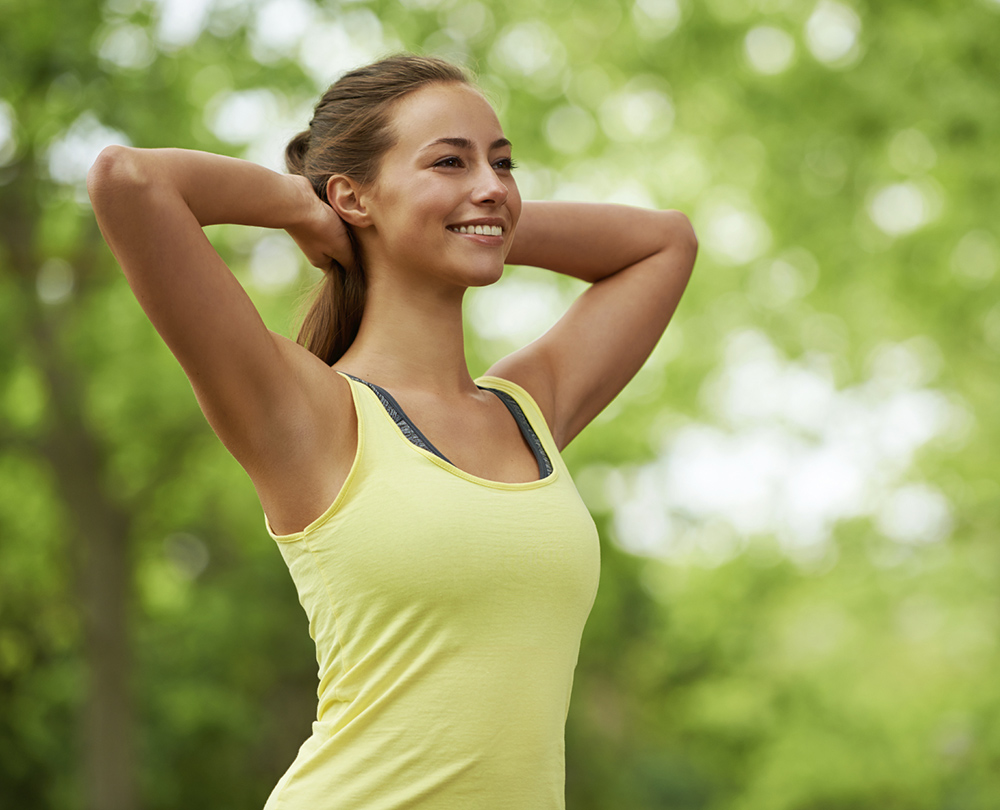Get exercising and get happy!
Join our tribe of readers who are spreading happiness by creating Happiness Clubs, with help from Psychologies and Action for Happiness. Here, the focus is on exercise, writes Suzy Greaves

Being part of my Happiness Club is something I love. I’m finding that in small, measurable ways, life is changing, opening up and we’ve only been doing this for a couple of months. For example, I have a 45-minute drive into work and, in the past, I’ve been known to be – shall I say – a rather impatient driver? But as part of month one’s Happiness Club ‘give to others’ pledge, I decided to let people into the traffic – one small change, with a dramatic outcome. I get waved at and thanked during my journey and still get to work on time – with a smile on my face. In our last Happiness Club, the theme was connection. For me, this coincided with the purchase of a new cooker so I have been inviting friends for everything from afternoon tea to Sunday lunch – and had the most social time of my life – fun and nourishing in every way.
Let’s get physical
This month, however, it’s time to get out of the kitchen and get moving. The third ‘key’ to happiness (we’re focusing on one per month), suggested by our partner Action for Happiness is: exercise. Yes, we all know exercise is good for our bodies but there’s a mountain of scientific evidence* that shows it’s also brilliant for improving self-esteem, raising our mood, decreasing anxiety, and even combatting depression. However, if the thought of joining a gym makes you want to stay in bed, you just need to think about it differently, advises Vanessa King, positive psychology expert at Action for Happiness.
‘Joining a gym and/or starting an exercise plan can be forever on our to-do list – how can you make it more of a priority? The realisation that it’s good for my brain motivates me,’ she says. ‘I’m not a natural exerciser, but I know I feel better when I move. Think beyond the gym! The most important thing is to think how you can get more movement into your day – be more naturally active. Walk rather than drive, get off the train a stop early, walk and talk instead of sitting for meetings or chats with friends.
Put music on and up the pace of housework. What stops me exercising is thinking I can’t find time for an hour-long class, especially when I add in the time it takes to get there and back. Instead, think something is better than nothing. If all you can do is squeeze in 10 minutes here and there, that’s a start. I found getting a heart rate monitor was fun and good – I could see when I was making enough effort.’
How much is enough to boost your mood?
Overall the research results indicate that low intensity aerobic exercise, for 30-35 minutes, on three to five days per week for 10-12 weeks, is optimal for improving positive moods. Research shows that even short bursts of 10 minutes’ brisk walking outside increases mental alertness, energy and positive mood states. At Psychologies, we have our office dog Oscar so he forces us – rain or shine – to get out every lunchtime, but if you haven’t got a dog, do you have to exercise outside or could you put on an exercise video?
‘Both are great!’ says King. ‘Evidence suggests exercising outside has some additional benefits – being in the light and around greenery is good for us.’ Research has found that just five minutes of exercise in a ‘green space’ such as a park or a common can boost mental health. Exercise can also have an impact on your self-esteem. A review of 113 studies found you can increase self-esteem if you exercise in a moderately demanding way, for 12 weeks or more, doing an activity you enjoy. For added benefits, do something with an element of goal-setting – with goals that feel achievable and result in feelings of success – be it running a 5K race after 12 weeks or being able to touch your toes after 12 weeks of yoga classes. Also, get active with others – again it can have a positive impact on wellbeing and mental health as it provides opportunities for making friends.
The other massive benefit of exercising is it can help you get a good night’s sleep. A recent survey found that higher levels of physical activity were associated with fewer reports of feeling overly sleepy during the day and less difficulty concentrating when tired. A session of 50 minutes’ moderate intensity aerobic exercise was found to reduce pre-sleep anxiety and improve sleep. A six-month commitment to physical activity (50 minutes’ moderate exercise, three times a week) resulted in improved sleep, greater quality of life and reduced negative moods, such as tension, depression and anger.
As someone who struggles with waking in the middle of the night, worrying, I’m lacing my trainers right now. Of all our challenges so far, this was the one my friends and I in our Happiness Club felt probably the most resistant to, but having read the research – are now most motivated to try out. I hope you’ll join us.
QUESTIONS TO DISCUSS AT YOUR HAPPINESS CLUB
When was the last time that you really enjoyed exercising/getting physical?
How can you build in more movement into your daily life?
What commitment, however small, can you make to getting active?
When was the last time that you enjoyed getting active outside and how can you build in more of that?
What do you think might have stopped you from exercising in the past? How have you sabotaged yourself or your plans?
What is a Happiness Club?
A book club-style gathering in your own home where you invite friends along to discuss how you can put happiness – your own and other people’s – at the heart of your life philosophy. With our Happiness Clubs, Psychologies and charity Action for Happiness are working together on a shared vision to create a happier and less self-centred world, with far fewer people suffering with mental health problems and far more people feeling good, functioning well and helping others.
HOW TO SET UP YOUR HAPPINESS CLUB
We started back in January but that doesn’t mean you can’t start now. Join us in our year-long happiness experiment! All the materials you need to register and start your own Happiness Club can be found on: lifelabs.psychologies.co.uk/channels/154-the-happiness-club. Be inspired by video interviews with Mark Williamson, director of Action for Happiness, and positive psychologist Vanessa King offering tips and cutting-edge research about happiness.
Photograph: iStock
More inspiration:
Read 6 songs to move your booty on Lifelabs
Read Get happy from the outside in on Lifelabs








